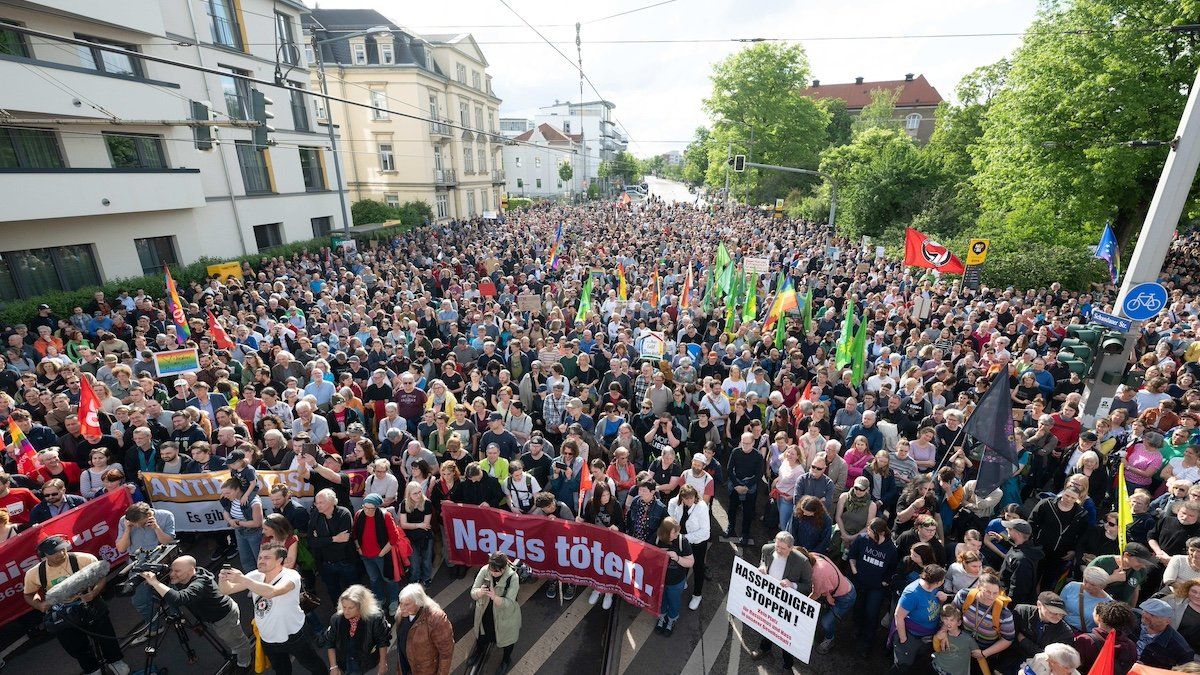Participants in a rally to mark an attack on an SPD politician stand on Pohlandplatz. After the brutal attack on the SPD politician Ecke, a 17-year-old turned himself in to the police.
Sebastian Kahnert/dpa via Reuters Connect
German politics is getting violent. This week, Berlin’s top economic official was attacked, sustaining head and neck injuries. A 74-year-old man was later arrested. Although the motive is unknown, it was the latest episode in a rising tide of political violence as Germany gears up for European Parliament elections this summer.
Last week, the top European Parliament candidate of the governing Social Democrat Party was beaten unconscious in the eastern city of Dresden while campaigning. A Green Party operative was assaulted there as well. Several teens with ties to far-right ideologies are suspected in both cases.
Statistics show rising violence against German politicians. In 2023, there were nearly 2,800 physical or verbal attacks, twice as many as in 2019, when a neo-Nazi assassination of conservative lawmaker Walter Lübcke stunned the country.
Last year’s violence included about 500 attacks on politicians from the far-right Alternative for Deutschland, or AFD, and more than 1,200 on members of the center-left Green Party.
Why now? The problem has deep roots, according to Jan Techau, a Berlin-based Europe expert at Eurasia Group. Establishment parties’ long-standing failure to address big issues like immigration, schooling, or the economy, he says, opened the way for more radical and violent forces on both the left and right. “What we see is an overall more charged, political atmosphere where this kind of violence becomes more legitimate.”